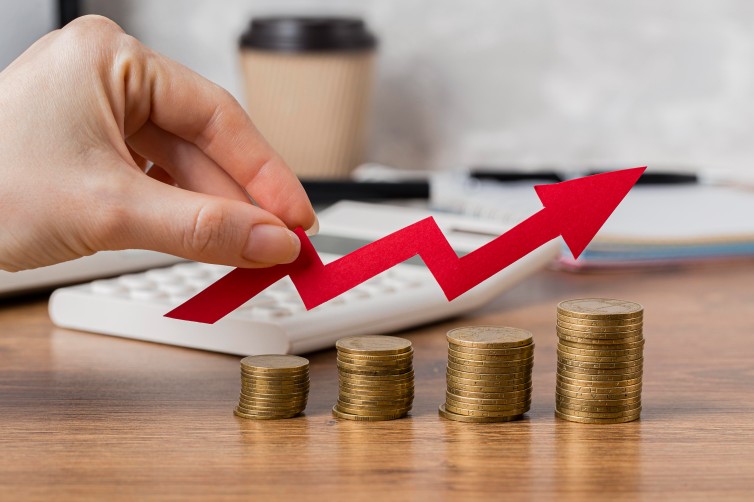The mindfulness gig economy has become a lifeline for many seeking financial independence and flexibility. Platforms offering freelance projects, side hustles, and task-based work are abundant. This dynamic work landscape, while exciting, also demands juggling multiple jobs and managing irregular schedules, often leading to burnout.
For those of us who strive to help others while navigating the financial maze ourselves, mindfulness offers a way forward—a practice that enables you to handle stress, maintain focus, and thrive without sacrificing mental peace. Combining mindfulness with financial literacy is a recipe for balance and success, especially in a world where gig work defines professional lives.
This guide takes you through proven mindfulness strategies, reflecting my own experience and challenges while helping you navigate the complex yet rewarding world of gig work.
Mindfulness in the Gig Economy: How to Stay Focused While Juggling Multiple Jobs

The gig economy has become a lifeline for many seeking financial independence and flexibility. Platforms offering freelance projects, side hustles, and task-based work are abundant. This dynamic work landscape, while exciting, also demands juggling multiple jobs and managing irregular schedules, often leading to burnout.
For those of us who strive to help others while navigating the financial maze ourselves, mindfulness offers a way forward—a practice that enables you to handle stress, maintain focus, and thrive without sacrificing mental peace. Combining mindfulness with financial literacy is a recipe for balance and success, especially in a world where gig work defines professional lives.
This guide takes you through proven mindfulness strategies, reflecting my own experience and challenges while helping you navigate the complex yet rewarding world of gig work.
The Allure and Challenge of the Gig Economy
The Freedom to Choose Your Path
The gig economy offers what traditional jobs rarely do—freedom. It allows people to follow passions, explore diverse opportunities, and supplement incomes. Popular gigs include:
- Freelancing in writing, graphic design, or web development.
- Teaching or consulting in a niche you excel in.
- Offering services via platforms like Uber, DoorDash, or Fiverr
This flexibility empowers many to carve their own paths and manage work-life balance on their terms.
But There’s a Catch: The Chaos Beneath the Flexibility
While the gig economy opens doors to freedom, it also comes with its share of chaos. Balancing multiple jobs means dealing with erratic work hours, high-pressure deadlines, and an income stream that fluctuates month-to-month.
Challenges like loneliness, lack of benefits, and a blurred line between work and personal time are common. It’s easy to lose focus or feel overwhelmed while trying to stay productive. Without a system to prioritize tasks and handle stress, the gig lifestyle can consume you.
What Is Mindfulness, and Why Does It Matter for Gig Workers?

Mindfulness is the practice of living in the present moment—fully engaging with your current task or environment. Instead of spiraling into anxiety about what’s ahead or dwelling on past mistakes, mindfulness trains your brain to concentrate on the “now.”
This habit is particularly crucial for gig workers who deal with unstructured schedules and shifting priorities.
Why Mindfulness Works in the Gig Economy
- Enhanced Focus: It reduces distractions, helping you complete tasks faster and with better quality.
- Emotional Regulation: Mindfulness lessens emotional reactions to difficult clients or setbacks.
- Stress Relief: Practices like deep breathing and meditation help you reset mentally during high-pressure days.
- Improved Work-Life Balance: It reminds you to live fully in both professional and personal spaces.
Using Mindfulness to Manage Gig Work: A Step-by-Step Guide

1. Create a Grounded Morning Routine
Mornings often set the tone for your entire day, and mindful practices can help you begin on a calm, focused note.
- Deep Breathing: Spend five minutes focusing on your breath. This lowers cortisol levels and prepares your mind for clarity.
- Visualize Success: Before starting work, imagine yourself navigating the day’s tasks smoothly.
- List Key Priorities: Identify the top three tasks that align with your goals.
For example, my mornings often begin with reflective journaling and prioritization. It keeps me grounded before tackling multiple commitments.
2. Plan Your Day with Intention
Balancing gigs requires careful planning. Allocate time blocks for each role or client and stick to them.
- Use tools like Trello or Notion to organize tasks.
- Apply the “Pomodoro Technique” by working in 25-minute intervals followed by short breaks.
- Reflect on your priorities each week to make mindful adjustments to your schedule.
By consciously planning tasks, you can prevent the sense of “reacting” to work and reclaim your control.
3. Practice Mindful Task Management
It’s tempting to multitask in the gig economy. However, science shows that multitasking reduces efficiency and increases mental fatigue.
- Focus on one task at a time. Fully immerse yourself in its completion before switching.
- Eliminate distractions by turning off notifications or creating a designated workspace.
For someone who values solitary focus, like me, dedicating uninterrupted time to each project significantly improves output quality.
4. Use Breaks to Refresh Mind and Body
One common trap of gig work is working without breaks to maximize productivity, which often backfires. Regular breaks allow your mind and body to recharge.
- Short Breaks: After each hour of work, step away to stretch or do a 5-minute mindfulness exercise.
- Long Breaks: Incorporate physical activity, whether it’s yoga, martial arts, or a short walk, to refresh your energy and perspective.
Personally, stepping into mindfulness-based yoga between tasks not only relaxes me but reinvigorates my creativity.
5. Mindfulness for Financial Planning
Mindfulness doesn’t stop at managing time—it also extends to managing money.
- Create a mindful budget. Categorize earnings into immediate needs, future savings, and discretionary spending.
- Track cash flow. Apps like Mint or YNAB help monitor earnings and expenses without feeling overwhelmed.
- Build an emergency fund. Even small contributions provide a mental safety net, reducing anxiety over fluctuating incomes.
Being intentional about my financial choices has enabled me to mitigate past risks while enjoying small victories.
Balancing Mindfulness with Ambition in the Gig Economy
Why Ambition Without Balance Leads to Burnout
As someone who gravitates toward exploration and growth, I’ve found that unbalanced ambition can lead to diminishing returns. Stretching yourself too thin over gigs creates mental fatigue, affecting performance and well-being.
Foster Realistic Goals with Purpose
Mindfulness shifts the focus from hustling nonstop to creating meaningful progress. For example:
- Break down large gigs into smaller, achievable milestones.
- Prioritize personal growth, such as learning mindfulness-based stress management or developing niche skills.
Mindful Networking to Build a Support System

In the solitary world of gig work, meaningful connections can feel elusive. Yet fostering a community offers emotional relief and collaborative growth.
- Engage Authentically: Share your personal journey with mindfulness and gig work on platforms like Instagram or LinkedIn.
- Learn Through Collaboration: Partner with like-minded professionals on projects to exchange insights.
- Host or Attend Events: Whether online or offline, discussions about gig economy challenges can offer valuable perspectives and emotional support.
Building a mindfulness-focused online community has personally been one of my most rewarding strategies for balancing career aspirations with genuine connections.
Final Thoughts: Building a Sustainable Future
The gig economy is not a sprint—it’s a long marathon. Combining mindfulness with solid strategies allows gig workers to create balance, reclaim focus, and thrive amidst professional demands.
A structured approach with mindfulness at its core fosters financial security, emotional resilience, and a fulfilling lifestyle. Begin by incorporating one practice—such as mindful mornings or financial planning—and build from there. Each step propels you toward a more peaceful, prosperous journey.
Start today, one mindful step at a time.





0 Comments